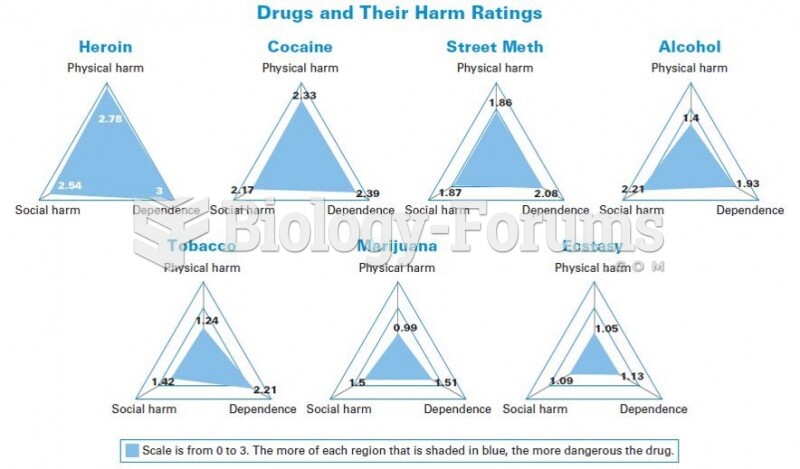|
|
|
Signs and symptoms of a drug overdose include losing consciousness, fever or sweating, breathing problems, abnormal pulse, and changes in skin color.
Anesthesia awareness is a potentially disturbing adverse effect wherein patients who have been paralyzed with muscle relaxants may awaken. They may be aware of their surroundings but unable to communicate or move. Neurologic monitoring equipment that helps to more closely check the patient's anesthesia stages is now available to avoid the occurrence of anesthesia awareness.
Women are 50% to 75% more likely than men to experience an adverse drug reaction.
Only one in 10 cancer deaths is caused by the primary tumor. The vast majority of cancer mortality is caused by cells breaking away from the main tumor and metastasizing to other parts of the body, such as the brain, bones, or liver.
Although puberty usually occurs in the early teenage years, the world's youngest parents were two Chinese children who had their first baby when they were 8 and 9 years of age.
 Giardiasis. Colorized electron micrograph of a Giardia protozoan adhering to the surface of an epith
Giardiasis. Colorized electron micrograph of a Giardia protozoan adhering to the surface of an epith
 Scaling the Earth down to the size of a basketball, the Moon is roughly the size of a tennis ball. T
Scaling the Earth down to the size of a basketball, the Moon is roughly the size of a tennis ball. T





